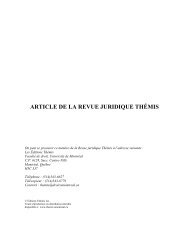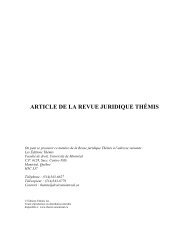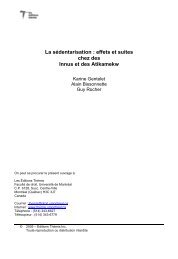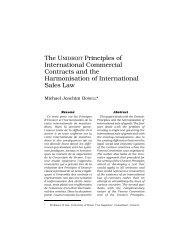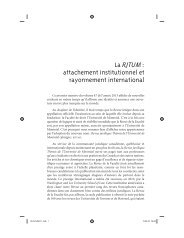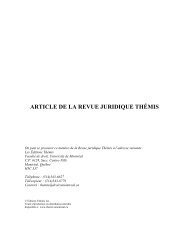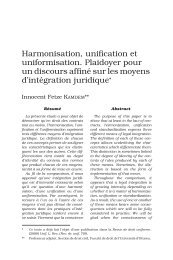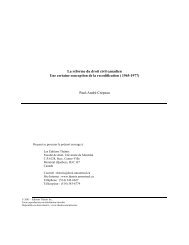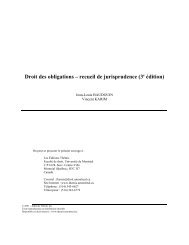The UNIDROIT Principles of International Commercial Contracts and ...
The UNIDROIT Principles of International Commercial Contracts and ...
The UNIDROIT Principles of International Commercial Contracts and ...
Create successful ePaper yourself
Turn your PDF publications into a flip-book with our unique Google optimized e-Paper software.
THE <strong>UNIDROIT</strong> PRINCIPLES AND MERCOSUR COUNTRIES 385<br />
solution for the determination <strong>of</strong> the law governing their transactions.<br />
In cases where the <strong>Principles</strong> are chosen, the agreement will<br />
be governed by an organized set <strong>of</strong> rules that are fully instrumented<br />
to accommodate the specific needs <strong>of</strong> international trade 14 .<br />
Nonetheless, even in countries whose conflicts-<strong>of</strong>-laws rules<br />
traditionally embrace the choice-<strong>of</strong>-law autonomy principle, we can<br />
note, sometimes, a strong resistance in accepting the <strong>Principles</strong> as<br />
the law applicable to a contract. Such situation results from the<br />
restrictions imposed to the parties or national judges in most legal<br />
systems to accept the choice in favor <strong>of</strong> a non-legislative system,<br />
transnational in nature, such as the <strong>Principles</strong>. Generally speaking,<br />
those who support such prohibition argue that a contract cannot<br />
exist entirely disconnected from a national legal system; in other<br />
words, a « contract without law » cannot be valid.<br />
In spite <strong>of</strong> the increasing transnational character <strong>of</strong> commerc i a l<br />
transactions <strong>and</strong> the apocalyptical voices that announce the end <strong>of</strong><br />
nation States, domestic laws remain as solid pillars for the<br />
application <strong>of</strong> international law, be it in the form <strong>of</strong> intern a t i o n a l<br />
conventions <strong>and</strong> treaties ratified by the world nations, or by means<br />
<strong>of</strong> the application <strong>of</strong> the domestic conflicts-<strong>of</strong>-laws rules. Along<br />
these lines an eminent Brazilian scholar once stated that:<br />
When in Private <strong>International</strong> Law the parties’ will chooses the applicable<br />
law, it is because another law, that <strong>of</strong> Private <strong>International</strong> Law, authorized<br />
it to proceed in such way, <strong>of</strong>fering it such freedom. 15<br />
<strong>The</strong> scholar’s lesson is greatly pertinent when we bear in mind<br />
that the Latin American countries’ legal systems, which make part<br />
<strong>of</strong> the Civil Law tradition, were formed on the basis <strong>of</strong> the Iberian<br />
Peninsula law, strongly centralizing <strong>and</strong> State-oriented 16 .<br />
It is not surprising that the choice-<strong>of</strong>-law autonomy in<br />
contractual matters, nowadays widely accepted by most European<br />
<strong>and</strong> North-American legal systems, still finds resistance in the<br />
South-American countries, whose conflict rules derive from XIXth<br />
14 Friedrich K. JUENGER, “<strong>The</strong> Lex Merc a t o r i a <strong>and</strong> Private <strong>International</strong> Law“,<br />
(2000) 1 Unif. L. Rev. 179.<br />
15 H. VALLADÃO, op. cit., note 13, p. 363.<br />
16 Alfredo BUZAID, “Juízo Arbitral”, (1959) 181 Revista Forense 453.



